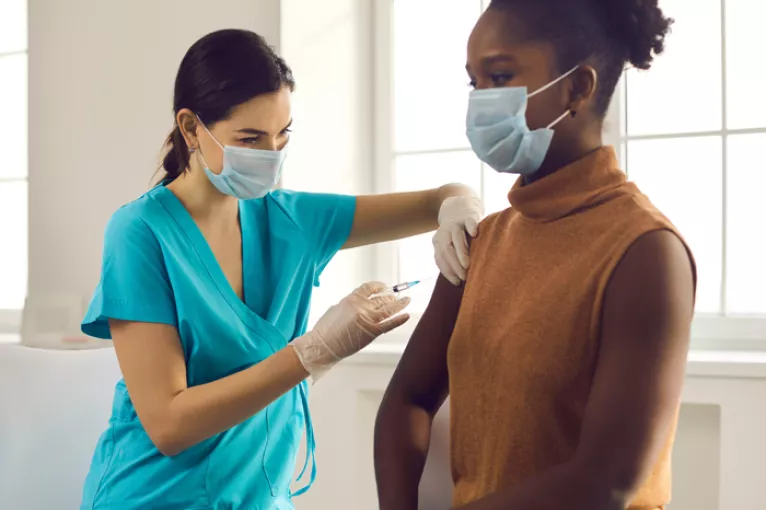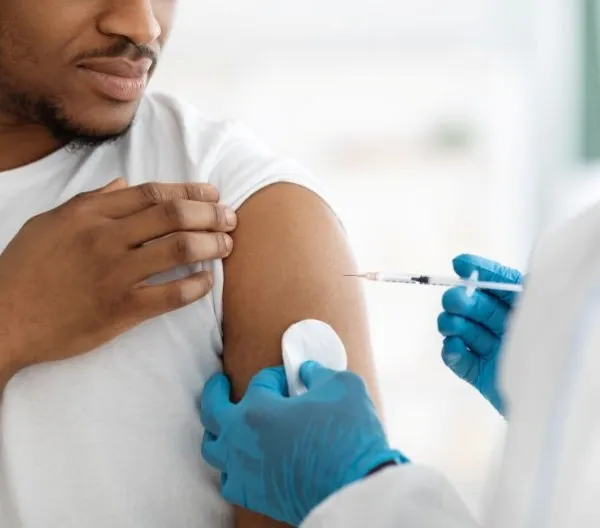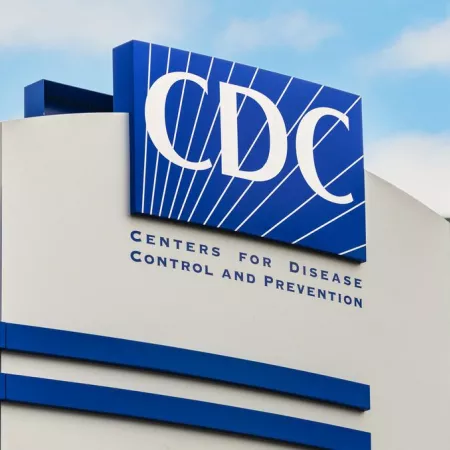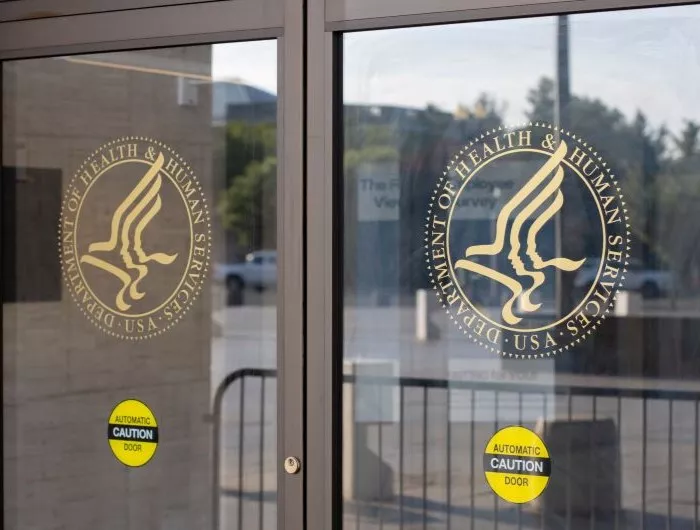The Straight Shot: Federal vaccine updates - Sep 3, 2025

weyo - stock.adobe.com.
2025 has seen many changes in federal vaccine policy and programs. This list—published Sep 3, 2025, and drawn from news reports and other information—ranks the most significant changes to vaccination policy, with brief commentary from the editors.
Editors’ note: The Centers for Disease Control and Prevention (CDC) is experiencing an unprecedented crisis. A gunman attacked the campus, killing a police officer, apparently seeking to deliver a message against Covid-19 vaccines. The first Senate-confirmed CDC Director was fired a few weeks after she was confirmed, apparently for insisting on using evidence to guide vaccine decisions. Key agency leaders involved in vaccine policy resigned in protest. The stage is set for upending policies, based on evidence, that protect American health. This is a dangerous moment.
The Straight Shot in your inbox
Stay up-to-date on threats to vaccine safety, changes in federal policy, and vaccine availability and accessibility with The Straight Shot. Click below to get these updates directly in your inbox.
Sign up for email updatesNew and updated
1. The White House fires CDC Director after dispute on vaccines
On Aug. 27, just a month after the Senate voted to confirm her, the White House fired Dr. Susan Monarez from her job as CDC director after she refused to resign and HHS Secretary Kennedy tried to dismiss her. She was reportedly fired for refusing to fire agency leaders without cause and for resisting a demand to rubber-stamp vaccine recommendations made without science to support them.
The three key CDC leaders whom Dr. Monarez refused to fire without cause resigned from CDC. These leaders are Dr. Demetre Daskalakis, the Director of the National Center for Immunization and Respiratory Diseases; Dr. Dan Jernigan, the Director for the National Center for Emerging and Zoonotic Infectious Diseases, which houses the CDC’s Immunization Safety Office; and Dr. Deborah Houry, the Chief Medical Officer of the CDC.
Editor's note: Aug. 27 will be a day of public health infamy—a day when the mask dropped and it became crystal clear that "gold standard science" or "radical transparency" have been pretexts for undermining vaccine policy. – SD
2. FDA approves COVID vaccines with restrictions
On Aug. 27, the FDA approved Covid booster shots, manufactured by Moderna, Pfizer, and Novavax, for the fall season. In contrast to previous years, when the FDA approval was for virtually everyone six months and older, this approval was limited to:
- those 65 and older, and,
- younger people with medical conditions that would put them at higher risk for severe disease.
The limited label appears to directly conflict with recommendations from the American Academy of Pediatrics, which call for all children ages 6 months to 2 years to receive a primary series, given their high rate of illness and hospitalization.
As part of the approval, the FDA also imposed additional requirements on companies, based on a short statement from the director of the FDA’s Center for Biologics Evaluation and Research (CBER), without external input or apparent internal policy development. These include studies of “post-Covid-19 vaccination syndrome,” which is not well defined, leaving one expert to say, "The risk really is that this post-vaccination syndrome becomes a catch-all label for any persistent symptoms after vaccination…We could end up with a diagnosis that doesn’t actually help patients get the right treatment.”
According to the Aug. 26, 2025, decision memo, CBER also rejected co-administration of COVID, flu, and RSV vaccines on the Pfizer Covid vaccine label in the absence of clinical trial data, claiming that co-administration could affect the safety and efficacy of the vaccines. This policy could disrupt the childhood vaccination schedule by requiring multiple visits for routine immunization.
Editor’s note: FDA leaders have justified the agency's newly restrictive approvals for COVID vaccines using the fact that other countries have tailored recommendations for COVID vaccination. But those other countries generally tailor their recommendations for the administration of vaccines, not their approval of the products themselves. The FDA is breaking new ground in limiting the approval, complicating insurance coverage and access. – JR
3. HHS is causing interruptions to vaccine access
On Aug. 27, FDA invalidated the emergency use authorization for Pfizer's pediatric COVID vaccine, removing it from the market as the respiratory virus season begins. The action has complicated the delivery of vaccines for young children this fall. Key questions include (1) whether Moderna, which has its own pediatric vaccines, can meet demand; and (2) whether the Vaccines for Children program can purchase sufficient Moderna vaccine to meet demand in clinics serving low-income children. On Aug. 22, the CDC issued a sole-source contract to Moderna "to allow for the additional purchase of the licensed pediatric COVID vaccine."
Meanwhile, the CDC's delay in issuing fall COVID vaccine recommendations is upending vaccine access in pharmacies. CVS and Walgreens have adopted a confusing set of policies based on the narrow FDA approval and the absence of recommendations, so far, from the Advisory Committee on Immunization Practices (ACIP; they are scheduled to meet on Sep. 18-19). In some states, the pharmacies are not offering the vaccine at all, and, in others, they are requiring a physician prescription. The New York Timesreported that when a news reporter "tried to schedule vaccine appointments in all 50 states, the Walgreens website said patients would need a prescription in 16 of them. Though there is some overlap, it’s not the same set of 16 as CVS, underscoring the level of confusion."
Editor's note: This is just the beginning of the confusion, as the gap between the recommendations of leading medical organizations and the approach of HHS grows larger. – JS
4. ACIP establishes a Covid vaccine working group
The Covid-19 ACIP working group was established in 2020 as a subgroup of the full ACIP. It has been recently revamped with updated terms of reference, which refer to various unproven theories of how vaccines may cause harm. It will be chaired by Retsef Levi, a new ACIP member whose pinned tweet states "the evidence is mounting and indisputable that MRNA vaccines cause serious harm including death, especially among young people. We have to stop giving them immediately!" Levi does not have a medical degree or clinical experience.
Editor's note: Medical and public health groups have been barred from participation on ACIP working groups because, according to a notice these groups received from CDC, they may bias the proceedings. Foreclosing the participation of leading public health and medical experts on this working group chaired by someone who has demonstrated a strong bias invalidates its legitimacy. – PL
5. Sec. Kennedy pushes West Virginia to loosen vaccination requirements
West Virginia, one of five states without nonmedical exemptions to school entry immunization requirements, has one of the highest kindergarten vaccination rates in the country. West Virginia Governor Patrick Morrissey has been pushing the state to allow nonmedical exemptions and on Aug. 21, 2025, HHS bolstered that effort by sending the West Virginia health departments a letter warning that the state’s school entry requirements may violate federal civil rights laws. Yet previously, in the first Trump administration, the Department rejected requests to withhold federal funds from states that provide religious exemptions for vaccination.
Editor’s note: Sec. Kennedy has long opposed state school entry immunization requirements, despite clear evidence that these rules have improved immunization rates and contributed to a decline of dangerous infectious diseases. This year we are seeing the return of dangerous childhood diseases such as measles and pertussis. These attacks on local policies will not improve the health of our children. –SD
6. HHS launches a federal task force on safer childhood vaccines
On Aug. 15, Secretary Kennedy announced the re-establishment of a federal task force on vaccine safety that was called for in 1986 legislation that established the Vaccine Injury Compensation Program (VICP) but has not formally been convened in years. Administration officials described the task force as a major step forward, with the NIH director stating, “By reinstating this Task Force, we are reaffirming our commitment to rigorous science, continuous improvement, and the trust of American families."
In fact, the 1986 legislation states that the task force consists of three members: "the Director of the National Institutes of Health, the Commissioner of the Food and Drug Administration, and the Director of the Centers for Disease Control." These agencies have long worked together to advance vaccine safety. An outstanding question is whether these leaders will be staffed by career officials with expertise in vaccine science or by recent hires who are biased against vaccines.
Editor’s note: It is simply not the case that current leadership is taking long-overdue steps on vaccine safety. Major improvements on the topic have been made over decades of coordinated work. What distinguishes this administration is its rejection of evidence and expertise related to vaccine safety and its elevation of theories without basis. – JR
7. Draft MAHA strategy document again links childhood vaccines to chronic illnesses
On May 22, as part of Secretary Kennedy’s focus on the rise of childhood chronic diseases, the White House issued the Make Our Children Healthy Again Assessment. One section of the report was dedicated to concerns regarding vaccines, questioning the expansion of the childhood immunization schedule, the adequacy of clinical trials, the effectiveness of safety monitoring, the integrity of the VICP, and the role of vaccine mandates. The report came under fire for including AI-generated inaccuracies and misrepresenting data.
On Aug. 14, it was reported that a draft of a second "strategy" document lists vaccines as a possible culprit in the rise in chronic diseases among children. According to the document, the administration intends to “investigate vaccine injuries with improved data collection and analysis, including through a new vaccine injury research program at the NIH Clinical Center that may expand to centers around the country.” The document also references development of a new vaccine framework that includes "Addressing Vaccine Injuries.”
Editor’s note: The Administration's focus on vaccines is not slowing down. Each of these steps will create new opportunities to affect access to products that are protecting millions of Americans. – PL
The Straight Shot in your inbox
Stay up-to-date on threats to vaccine safety, changes in federal policy, and vaccine availability and accessibility with The Straight Shot. Click below to get these updates directly in your inbox.
Sign up for email updatesOngoing
8. Potential changes to the Vaccine Injury Compensation Program
Secretary Kennedy posted on X on Jul. 28 that he is working with the Attorney General to “fix” the VICP, a longstanding effort that provides limited liability for vaccine manufacturers and administrators, thus reducing market barriers, as well as compensation for people who have been injured by vaccines.
He followed the post with an interview with Charlie Kirk, the Executive Director of Turning Point USA, but failed to articulate any concrete steps he and HHS are taking to address the issues he identified. This is on the heels of Sec. Kennedy bringing Drew Downing, a lawyer with experience suing vaccine manufacturers, into HHS to work on the VICP. HHS has never stated specifically what Downing was brought on to accomplish. It is clear that Sec. Kennedy does have levers with regards to liability exposure that could indeed impede access to vaccines.
Editor's note: Changes to the VICP have the potential to dramatically reduce access to vaccines. This will remain on the list until we know more. – JR
9. ACIP launches new investigations on vaccine safety
At their June meeting, the ACIP chair announced two new workgroups. The first aims to review the cumulative effects of the childhood and adolescent vaccination schedules. The second intends to examine vaccination recommendations that have not been reviewed in the past seven years, including the birth dose of hepatitis B vaccine–long a target of anti-vaccine organizations.
(No change from the previous update.)
Editor's note: The membership of these workgroups will be a signal as to whether their outcome has been predetermined, but they won’t be including liaisons from many major medical groups (see number 4 in New and Updated). – SD
10. HHS mismanages the measles response in the Southwest
As of Aug. 26, there have been 1,408 confirmed cases of the disease, including 176 hospitalizations and three deaths; this is the largest number of cases in a single year in the US in 33 years. California now has more cases in 2025 than in all of 2024.
The outbreak in West Texas has ended in part because the virus sickened so many people it ran out of susceptible people to infect. The number of communities where people are undervaccinated has grown, meaning there are increasing pockets of susceptibility to additional outbreaks of measles.
During the response to the West Texas outbreak, Sec. Kennedy made a number of misstatementsabout the safety of the measles vaccine, endorsing unproven treatments, and preventing experts from briefing the public. HHS also cut grant funds for the states' measles responses.
Editor's note: Already this year, we have seen three measles-related deaths, including two in children. The combination of reduced support for immunization efforts, false information about vaccines coming out of HHS leadership, and a growing number of under-vaccinated communities means that the risk of additional measles outbreaks this year is actually going up, not down. – SD
11. HHS hires anti-vaccine activists to review vaccine safety data
HHS has hired David Geier, a leading source of misinformation about vaccines, to investigate questions related to vaccine safety. The Wall Street Journal has reported on Geier’s attempts to gain access to various databases within HHS, including one that he had twice been precluded from using as a result of violating ethical rules. “He has no record in the scientific community of doing valid work,” said Dr. Walter Orenstein, an epidemiologist and former director of the U.S. National Immunization Program at the CDC.
The recent hiring of Lyn Redwood, another leading anti-vaccine individual, at HHS poses similar concerns.
(No change from the previous update.)
Editor's note: This item, detailed in previous updates of The Straight Shot, stays on our list until the Geier report is released. – JS
12. HHS moves $500 million to study older vaccine technology favored by two appointees
As noted in the New and Updated item 1 above, HHS has permanently pulled $500 million from contracts for next-generation vaccines and is using the funds to study a type of “whole-virus" vaccine technology championed by two political appointees. “Whole-virus” vaccines are 70 years old and thought by many scientists to be less effective and cause more adverse effects than newer technologies.
(No change from the previous update.)
Editor's note: This item, described in more detail in previous updates of the Straight Shot, will stay on our list until we learn more about this enormous investment of federal resources. – JS
13. HHS cuts funds for vaccination in states and for its own vaccine staff
A federal judge has ruled that the Administration cannot proceed—in certain states that sued—with billions in cuts to state public health funds. In the other states that did lose funding, some funds were used to support vaccination clinics; other funds were used for outbreak monitoring and response. Personnel cuts to CDC vaccine activities have remained in place.
(No change from the previous update.)
Editor's note: This item, detailed in previous updates of The Straight Shot, stays on our list until the litigation is resolved. – JR
14. HHS and autism
On Apr. 10, Sec. Kennedy announced in a cabinet meeting that HHS has launched an effort to understand the causes of autism, with results expected in September. He has since amended that timeline, saying that there will be some information in September and “more definitive” information coming six months after that. On May 7, CMS and NIH announced that they will be sharing data in order to investigate the causes of autism. We're watching whether this effort will proceed in a scientifically rigorous manner, including whether it will attempt to point to vaccines as the cause of autism. On May 27, the NIH issued the funding opportunities for its Autism Science Data Initiative.
At a cabinet meeting on Aug. 26, Secretary Kennedy stated that, “We will have announcements as promised in September, finding interventions, certain interventions, now that are clearly almost certainly causing autism. And we’re going to be able to address those in September.”
Editor's note: We’ll keep this issue on the list as we anticipate this to be an active area given Secretary Kennedy’s focus on this topic. – PL
15. Sec. Kennedy attacks safety of aluminum adjuvants in vaccines
In an unusual blog post on TrialSiteNews, Secretary Kennedy took aim at a Danish study published in Annals of Internal Medicine that found no association between aluminum adjuvants in vaccines and various allergic and neurodevelopmental conditions. Aluminum adjuvants, used in many vaccines, improve vaccine efficacy by enhancing the immune response to the vaccine. He described the study as "a deceitful propaganda stunt by the pharmaceutical industry" that uses "deceptive devices" and an example of "garbage-in, garbage-out exercises in statistical manipulation." The author of the study responded to Sec. Kennedy’s attacks, writing "none of the critiques put forward by the Secretary is substantive."
These comments should be read in the context of the MAHA report alleging a potential connection between childhood vaccines and chronic diseases, and the new ACIP workgroup on the cumulative effects of the childhood vaccination schedule.
(No change from the previous update.)
Editor's note: Sec. Kennedy has many ways to explore scientific concerns with a published scientific study beyond a slapdash blog piece on a hospitable website. He could have sought input from experts in pharmacoepidemology and vaccine safety. He could have asked the National Academies of Science, Engineering, and Medicine to provide a review of the strengths and weaknesses of the methodology. Instead, he wrote a screed laden with insults that revealed a profound lack of understanding of epidemiological research. If HHS leaders have concluded aluminum adjuvants are unsafe, that may lead to policy changes with a profound impact on the availability of vaccines. – JR
Archived this week
1. HHS stops encouraging hospitals to report Covid staff vaccination rates
On Aug. 1, the Department of Health and Human Services and the Center for Medicare and Medicaid Services announced the end of an incentive program that rewarded hospitals for "hospital staff vaccination reporting" on the grounds that the data was "a tool for public shaming, not public health." The announcement, limited to Covid vaccine reporting, appears to leave hospital influenza vaccination reporting intact. Research has established that vaccination of hospital staff against influenza is associated with less disease among patients.
2. Secretary Kennedy ends HHS recommendation for thimerosal-containing influenza vaccines
On Jul. 22, Secretary Kennedy adopted the recommendation of his new Advisory Committee on Immunization Practices (ACIP) to drop support for influenza vaccines containing the preservative thimerosal. This recommendation was made after HHS refused to let CDC scientists present to the Committee about multiple studies that failed to show harm from the preservative but instead permitted a known thimerosal critic to present.
This policy change could reduce vaccine access in the areas that still use thimerosal-containing multi-dose containers as a result of supply-chain needs; reimbursement for these vaccines is now also in doubt.
3. CDC Vaccine Advisory Committee blocks input from medical and public health groups
The CDC’s ACIP historically has conducted much of its work through working groups that bring together committee members with national experts and liaisons from leading medical and public health organizations, including the Infectious Diseases Society of America, the American Nurses Association, and the Association of Immunization Managers. On Jul. 31, however, HHS informed these liaisons that their participation in the working groups was no longer welcome on the grounds that they are "special interest groups."
Editor’s note: Much of the key work of developing recommendations is handled by working groups. With this action, HHS is stripping these groups of critical expertise, removing an obstacle to the imposition of arbitrary and unsubstantiated policies. – SD
Tags
Topics

All Straight Shot updates
2025 has seen many changes in federal vaccine policy and programs, some of which threaten to harm the health and safety of millions of Americans. The Straight Shot—drawn from news reports and other information—ranks the most significant changes to vaccination policy, with brief commentary from the editors.
The authors

Peter Lurie, MD, MPH
President and Executive Director

Sarah Despres

Josh Rising, MD, MPH

Joshua M. Sharfstein, MD
The latest threats to vaccines
Off-label use of COVID-19 vaccines was once discouraged but has become common amid new guidelines
Vaccines

Inside the high-stakes battle over vaccine injury compensation, autism, and public trust
Vaccines

Do pediatricians recommend vaccines to make a profit? There’s not much money in it
Vaccines

CDC purge and Covid vaccine restrictions threaten public health
Government Accountability

Pediatricians’ association recommends COVID-19 vaccines for toddlers and some older children, breaking with CDC guidance
Vaccines

CSPI is your food & health watchdog
We envision thriving communities supported by equitable, sustainable, and science-based solutions advancing nutrition, food safety, and health.
As a nonprofit organization that takes no donations from industry or government, CSPI relies on the support of donors to continue our work in securing a safe, nutritious, and transparent food system. Every donation—no matter how small—helps CSPI continue improving food access, removing harmful additives, strengthening food safety, conducting and reviewing research, and reforming food labeling.
Please support CSPI today, and consider contributing monthly. Thank you.

How CSPI is fighting threats to public health
Safe, nutritious food. Effective medicine. Empowered consumer choice. Honest and democratic government. These key building blocks of an American way of life can only be fully realized in a system that respects evidence, transparency, and accountability—a system where leaders believe in science and work for the public interest.

